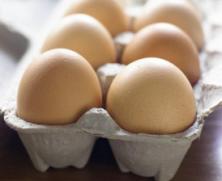Record egg sales as Australians eat more eggs

Egg sales in Australia hit a record high in 2010. Figures show more than 122 million dozen eggs were sold in Australia last year, revealing an increase of 9 million dozen on 2009 when the previous record was set.
“The record egg sales last year represent an outstanding result in what was a challenging year for the industry,” said the Managing Director of the Australian Egg Corporation (AECL), James Kellaway.
“To achieve this outcome, egg farmers had to overcome a shortage of eggs earlier in the year, higher feed prices due to prolonged drought conditions, as well as the need to make significant changes to their capital infrastructure – up to 60% of their business assets – to meet higher animal welfare standards. These facts alone make the results all the more impressive, demonstrating the professionalism within this important sector.”
The 2010 figures represent an increase in sales of 7.8% from 2009, the second-highest year-on-year percentage increase in the past decade, behind 2000-2001, compared to Australia’s population growth of less than 1.7%.
Higher demand for eggs by Australian families over the long term is further reflected by sales in 2010 being more than 45 million dozen higher than in 2000, up by 36%. “These figures reinforce the central role that eggs play in a healthy diet due to the convenience, versatility and nutrition of eggs,” Kellaway said.
The figures also show that the average price of a dozen eggs in 2010 was $4.00, a drop of more than 2% on 2009 prices (when the average cost was $4.10). “While lower prices benefit consumers and make eggs more accessible, egg farmers believe they provide excellent value for money and the egg industry would have preferred to have seen a higher return for eggs in 2010 due to increasing costs,” Kellaway said.
Source: Australian Egg Corporation












